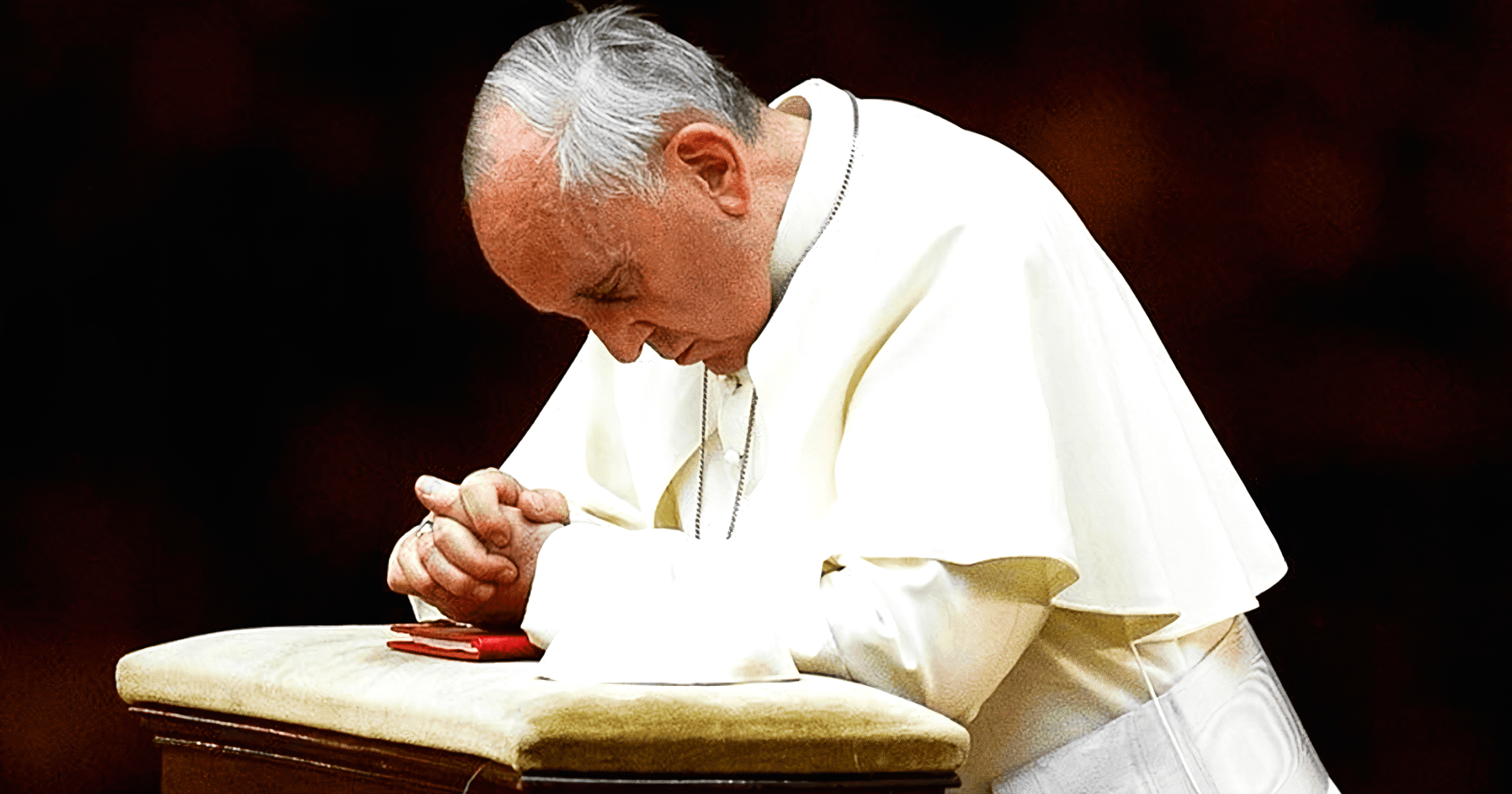Distraction. The dark night of the soul. Apathy.
To Pope Francis, these are the three most common obstacles to a prayer. How do we can overcome them to attain a pious prayer life? Pope Francis shared his methods at his Wednesday General Audience yesterday.
Distractions
Distractions are not guilty, but they must be fought. In the heritage of our faith there is a virtue that is often forgotten, but which is so present in the Gospel. It is called “vigilance”. And Jesus said, “Keep vigil. Pray”. The Catechism mentions it explicitly in its instruction on prayer (cf. no. 2730). Jesus often calls the disciples to the duty of a sober life, guided by the thought that sooner or later He will return, like a bridegroom from a wedding or a master from a journey. But since we do not know the day and hour of His return, all the minutes of our lives are precious and should not be wasted on distractions. In a moment that we do not know, the voice of our Lord will resound: on that day, blessed will be those servants whom He will find industrious, still focused on what really matters. They did not stray in pursuit of every attraction that came before their minds, but tried to walk the right path, doing good and performing their own task. This is distraction: the imagination wanders, it wanders and wanders… Saint Teresa used to call this imagination that wanders in prayer “the madwoman in the house”; it is like a madwoman that leads you here and there … We must stop it and cage it, with attention.
The Dark Night of the Soul
The time of barrenness warrants a different discourse. The Catechism describes it in this way: “The heart is separated from God, when there is dryness, with no taste for thoughts, memories and feelings, even spiritual ones. This is the moment of sheer faith clinging faithfully to Jesus in his agony and in his tomb” (no. 2731). Barrenness makes us think of Good Friday, at night, and Holy Saturday, all the day: Jesus is not there, He is in the tomb; Jesus is dead, we are alone. And this is the thought that gives rise to barrenness. Often we do not know what the reasons for barrenness are: it may depend on ourselves, but also on God, who permits certain situations in the outer or inner life. Or, at times, it can be a headache or a problem of the liver that stops us from entering into prayer. Often we do not really know the reason. Spiritual teachers describe the experience of faith as a continuous alternation of times of consolation and desolation; there are times when everything is easy, while others are marked by great heaviness. Very often, when we encounter a friend, we say, “How are you?” – “Today I am down”. Very often we are “down”, or rather, we don’t have feelings, we don’t have consolation, we are unable. They are those grey days … and there are so many of them in life! But the danger is having a grey heart: when this “feeling down” reaches the heart and it sickens… and there are people who live with a grey heart. This is terrible: one cannot pray, one cannot feel consolation with a grey heart! Or, one cannot emerge from spiritual barrenness with a grey heart. The heart must be open and luminous, so that the light of the Lord can enter. And if it does not enter, wait for it, with hope. But do not close it up in greyness.
Apathy
So what can we do in this succession of enthusiasms and discouragements? One must learn to go forward always. True progress in the spiritual life does not consist in multiplying ecstasies, but in being able to persevere in difficult times: walk, walk, walk on… and if you are tired, stop a little and then start walking again. But with perseverance. Let us remember Saint Francis’ parable on perfect joy: it is not in the infinite fortunes rained down from Heaven that the ability of a friar is measured, but in walking steadily, even when one is not recognised, even when one is mistreated, even when everything has lost its initial flavour. All the saints have passed through this “dark valley”, and let us not be scandalised if, reading their diaries, we find accounts of evenings of listless prayer, lived without enthusiasm. We must learn to say: “Even though You, my God, seem to be doing everything to make me stop believing in You, I still continue to pray to You”. Believers never stop praying! It may sometimes resemble the prayer of Job, who does not accept that God treats him unjustly, protests and calls him to judgment. But, very often, even protesting before God is a way of praying or, as that little old lady said, “being angry with God is a way to pray too”, because many times a son is angry with his father: it is a way of relating to the father; since he recognises him as “father”, he gets angry.


















I’m having a hard time praying FOR Francis. But here goes…
c/o Father Dolindo Ruotolo;
“O Jesus, I surrender myself to You. Take care of everything.”
(10x) Amen
Ecce Crucem Domini! Fugite partes adversa!
Vicit Leo de tribu Juda, Radix David. Alleluia!
Saint Anthony of Padua, pray for us. For Italy.
Saint Teresa of Avila, pray for us. For Rome.
Blood of Christ Crucified, restore the Vatican.
I would say we are having hard times to pray because of focusing on worldly things.we too much work and thought trying to be somebody yet no time for prayers.lord give us the strength to listen to your calling voice.
Thanks for the tips. Recently, I’ve passed stressful time. I wanna reduce my stress away.